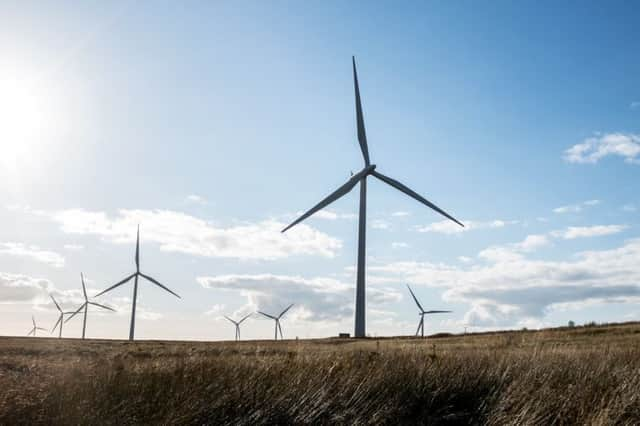Wind turbines in Scotland '˜set new record' for March


The call by WWF Scotland comes as the group published data revealing that wind turbines in Scotland set a new March record for the total amount of power sent to the National Grid since records began.
Analysis of wind power data found for the month of March that turbines in Scotland provided 1,240,095 MWh of electricity to the National Grid - enough to supply, on average, the electrical needs of 136 per cent of Scottish households, or 3.3 million homes.
Advertisement
Hide AdAdvertisement
Hide AdThis represents an increase of 81 per cent compared to that of March 2016, when wind energy provided 684,632 MWh.
The 1,240,09 5MWh of electricity sent to the National Grid by wind farms in Scotland represents a new record for an entire month of March.
The previous highest recorded March output figure was in 2015, when 1,006,018 MW was sent to the grid.
Scotland’s total electricity consumption, including homes, business and industry, for March was 2,146,872MWh.
Wind power therefore generated the equivalent of 58 per cent of Scotland’s entire electricity needs for the month.
WWF Scotland director Lang Banks said: “Given this March wasn’t as windy as it has been in some previous years, this year’s record output shows the importance of continuing increase capacity by building new wind farms.
“As well as helping to power our homes and businesses, wind power supports thousands of jobs and continues to play an important role in Scotland’s efforts to address global climate change by avoiding millions of tonnes of carbon emissions every year.
“However, the UK Government’s decision to end support for onshore wind is going to make meeting our international climate obligations much harder in the future.
Advertisement
Hide AdAdvertisement
Hide Ad“The reality is that if we’re serious about cutting carbon pollution in the most cost-effective way, then we need every one of the political parties in Scotland to back the continued deployment of onshore wind power.
“It’s only with political backing for onshore wind from all of the parties that Scotland will be able to maximise the benefits to its economy, as we transition to a renewable future.”